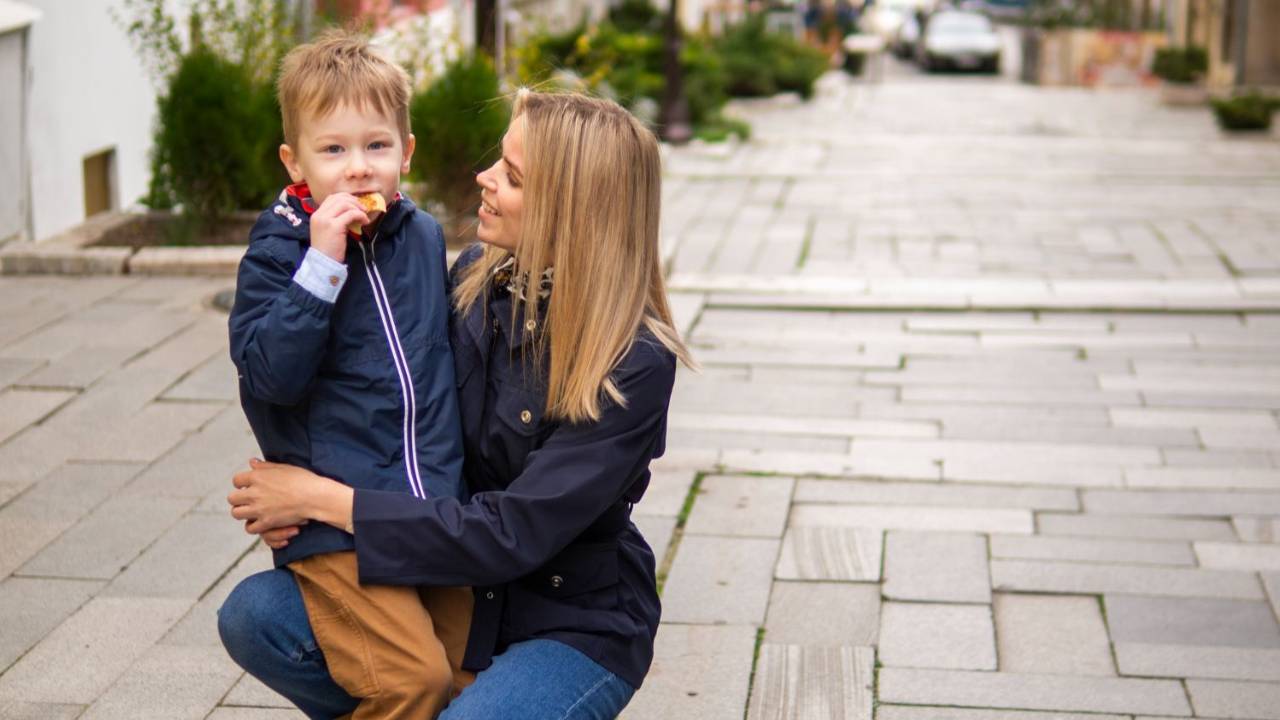How to get your child to talk about their day
Sep 29, 2025
Do you ever feel like pulling teeth would be easier than getting your child to tell you about their day at school? If so, you’re not alone. Many parents struggle with this. Some kids come home and spill every single detail (sometimes more than you want to know!), while others give you one-word answers like “fine” or “nothing.”
If your child falls into the “not a talker” category, here are some practical strategies to help them open up more easily:
1. Focus on Timing
The after-school window can be tricky. Kids often need time to decompress before they’re ready to share. Instead of peppering them with questions right away, try starting with connection:
👉 “Hey, I’m so happy to see you. I missed you today.”
Give them space, offer a healthy snack and some water (chewing actually helps regulate the nervous system and brings blood flow to the brain), and save deeper questions for later in the day when they’ve had time to reset.
2. Find Natural Connection Moments
Every child has their own “sweet spot” for conversation. For some, it’s over a snack, during play, or in the car. Others open up best at bedtime when they’re winding down. Pay attention to when your child seems more relaxed and experiment with different times.
✨ Pro tip: Kids often share more when you’re not looking them in the eyes and they don’t feel “on the spot.” Try talking side by side instead of face-to-face by walking the dog, folding laundry, or coloring together.
3. Ask Better Questions
Instead of asking, “How was your day?” (which usually leads to “fine”), try questions that are more specific and playful:
-
What made you laugh today?
-
Who did you sit with at lunch?
-
What was the hardest part of your day?
-
Did anything surprise you today?
-
If you could change one thing about today, what would it be?
-
Who was kind to you, or who did you show kindness to?
These questions are easier for kids to answer because they zoom in on a single moment or feeling.
4. Use Active Listening (and Resist the Urge to Fix)
One of the best ways to keep kids talking is to simply listen. That means holding back your advice, judgment, or quick solutions… even when it’s tempting.
Try reflective listening:
-
Child: “They made us play this game today at school.”
-
You: “They made you play a game today?”
-
Child: “Yeah, and I felt left out.”
-
You: “You felt left out?”
Simple reflections like “hmm,” “oh,” or repeating part of what they said shows you’re tuned in without shutting them down.
5. Share About Your Day Too
Sometimes kids open up more when you go first. Share a little about your own day. Tell them the funny part, the annoying part, or something you learned. This models openness and shows them what it looks like to share feelings and experiences.
6. Respect Their Personality
Some kids are naturally chatty, others are internal processors. If your child is quieter, don’t assume something is wrong. It may just take them longer to put their thoughts into words. Let them know you’re available when they’re ready, and avoid pressuring them to talk.
7. Create Rituals of Connection
Consistency helps kids know what to expect. You might make a routine of sharing “highs and lows” at dinner, or one “funny, tricky, kind” moment from the day. Over time, these rituals create a safe container for kids to share without it feeling forced.
8. Pay Attention to Nonverbal Clues
Sometimes kids tell you about their day through behavior rather than words. Meltdowns after school, clinginess, or irritability can be signs of overwhelm. Meeting them with empathy first (“Looks like you had a hard day”) instead of questions can open the door to later conversation.
Getting your child to talk isn’t about asking the perfect question, it’s about building trust, creating calm spaces, and showing you’re a safe listener. When kids feel heard instead of judged or rushed, they’re much more likely to open up.
Start small, experiment with timing, and most importantly, listen more than you talk.
If getting your child to open up feels like a daily struggle, you don’t have to tackle it alone. Inside the Confident Parenting Club, you’ll find practical tools, conversation strategies, and ongoing support to help you build stronger communication and connection with your kids, without the frustration and guesswork. With school back in full swing, now is the perfect time to join and head into the season with more calm, confidence, and connection. Click here to check it out!
Join the Confident Parenting Community.
Receive the latest tips and tools from the Confident Parenting Toolbox to support your kids
(and yourself!) with today's challenges so your whole family can thrive.
We hate SPAM. We will never sell your information, for any reason.

